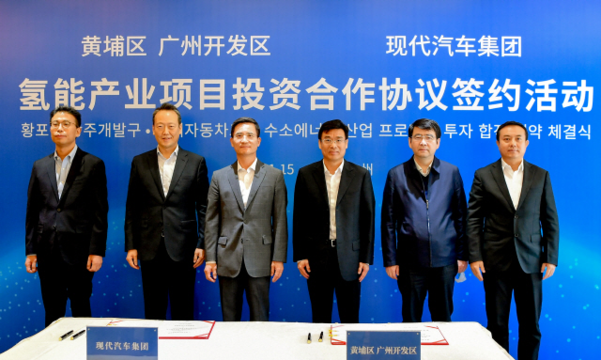Input 2021.01.15 14:53

The new subsidiary will be established with a 100% stake in Hyundai Motor Group. After signing a memorandum of understanding (MOU) with the Chinese government of Guangdong Province in December 2019 in connection with the establishment of a corporation, Hyundai Motor Group has conducted pre-market research to enter the Chinese hydrogen fuel cell system market, and site selection work for the construction of production facilities. Until recently, the details were discussed with Guangdong Province and Guangzhou City.
The Hyundai Motor Group plans to supply about 700,000 units of hydrogen fuel cell systems to the world annually in 2030, further expanding its global business with the establishment of a production base in China. Previously, Hyundai Motor Group signed an eco-friendly powertrain joint development agreement with Cummins in the U.S. in 2019, starting with a fuel cell technology partnership with Audi in 2018 in the field of hydrogen fuel cell system business, and from last year to a European hydrogen storage technology company and energy solution startup. It has started exporting.
Hyundai Motor Group’s hydrogen fuel cell system production base in China is scheduled to start at the end of February of this year and will produce 6,500 units a year from the second half of next year. It mainly produces the hydrogen fuel cell system installed in the hydrogen electric vehicle Nexo, and plans to dominate the Chinese hydrogen market by sequentially expanding its supply capacity in accordance with the Chinese central government policies and market conditions.

The roadmap also included a specific goal of supplying up to 1 million hydrogen electric vehicles, mainly commercial vehicles, by 2035. Also, from this year to 2025, China’s ’14th Five-Year Economic Development Plan’ is in progress, and China’s expansion of eco-friendly cars is also expected to accelerate.
Accordingly, the Hyundai Motor Group preoccupied the Chinese hydrogen market, which is expected to accelerate growth under the strong leadership of the central government with the world-class hydrogen fuel cell system mass production technology that it has already secured, including eco-friendly vehicles, hydrogen electric vehicles, and commercial hydrogen vehicles. It is a plan to do it.
An official from Hyundai Motor said, “Based on technological competitiveness, we will be able to directly participate in various hydrogen industry development pilot projects promoted by Guangdong Province through mutual cooperation with major Chinese companies, and secure a stable sales base from the beginning of local corporation establishment. “We plan to maintain a strong market dominance throughout China by establishing a large-scale production capacity and establishing strategic partnerships with front and rear companies related to the hydrogen industry in China.”
